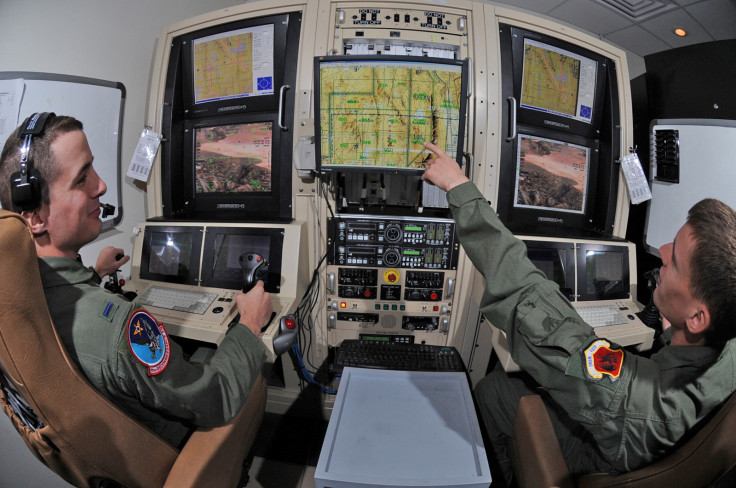US military using brain-zapping technology to boost mind power of its fighter pilots
Scientists have demonstrated that stimulating the brain with electricity can help boost cognitive ability.

Scientists from the US Air Force and Wright State University (WSU) have demonstrated that it is possible to stimulate the brain using electricity in order to improve an individual's effectiveness in high-pressure situations, particularly when piloting aircraft and remotely-controlling drones.
The US military has found over the past few decades that during highly stressful military operations whereby people need to multitask and process a huge amount of information at once, there comes to a point whereby human operators of specialised equipment can no longer take on any new information and process it effectively to make good decisions quickly.
There can be many reasons for this – stress, fatigue, or even feeling overwhelmed by events occurring at too fast a pace and for too long a period of time – and many of these reasons are mental, rather than physical.
In fact, fatigue from piloting military drones in surveillance and kill missions is so debilitating that the US Air Force had to cut down on the number of daily drone flights it scheduled in 2015, because so many burned-out pilots chose to quit their jobs. The US Air Force is now offering $125,000 (£100,860) bonuses to get drone operators to sign on for five-year contracts, but it's still not enough.
In the past, prescription drugs like Ritalin (for treating ADHD) and Modafinil (improving wakefulness) have been used as performance-enhancing drugs by the US military to stimulate the central nervous system, but in more recent times the Food and Drug Administration (FDA) and the US Department of Justice (DOJ) have found that Ritalin to be as addictive as cocaine, and Modafinil can permanently damage sleep patterns, as is also very addictive.
Stimulating the left prefrontal cortex
So researchers from WSU's Department of Biomedical, Industrial and Human Factors Engineering and military researchers stationed at the Wright-Patterson Air Force Base in Ohio from the AFRL 711th Human Performance Wing's Human Effectiveness Directorate decided to find a non-invasive method to improve alertness.
To that end, they have developed a brain-stimulation kit consisting of five electrodes that send weak electric currents into specific parts of the cerebral cortex. The technique, known as transcranial direct current stimulation (tDCS), involves placing electrodes on the scalp over the left prefrontal cortex, which is a region of the brain associated with sustained attention, working memory, decision making, planning and reasoning – all of which are used during multitasking.
The researchers studied 20 Air Force personnel (16 men and four women) with an average age of 31 and zapped half of the study participants with 2mA electric currents for 36 minutes, while the other half of the study participants were a control group that were only zapped for 30 seconds at the beginning of the test.
While the participants were being zapped, they were asked to take a test developed by Nasa to assess how well they multitask, which requires people to keep a crosshair inside a moving circle on a computer screen, while at the same time responding to three other tasks ongoing on the same screen.
The researchers examined the overall output from the participants and found that the group that had been consistently zapped with the electric currents during the test performed higher than the people who had not.
Working memory was enhanced by the electric current
The researchers found that the tDCS technique enhanced working memory so that the participants were able to store areas of the screen that had already been observed during the test so that the individuals' brains could focus purely on the remaining tasks they needed to complete.
The group that had been consistently zapped by the electric current during the test were better at completing tasks relating to communication and following a target, but the technique did not have a big effect on their scores on the monitoring and resource management tasks.
"The ability for a human operator to multitask efficiently in a military setting has been a major issue for the past several decades. Lower sensor and display costs have resulted in a large increase in the information that can be presented to the human operator," the scientists concluded in their paper.
"The data from the experiment reported herein provide new evidence that attention/vigilance performance is enhanced even when attention is divided among multiple tasks. This potentially has important implications for high workload environments that provide information to the operator via a wide range of stimuli. Additional research should be conducted to evaluate the robustness of these observed effects."
The open access paper, entitled "The Effects of Transcranial Direct Current Stimulation (tDCS) on Multitasking Throughput Capacity" has been provisionally published by the journal Frontiers in Human Neuroscience.
© Copyright IBTimes 2025. All rights reserved.






















